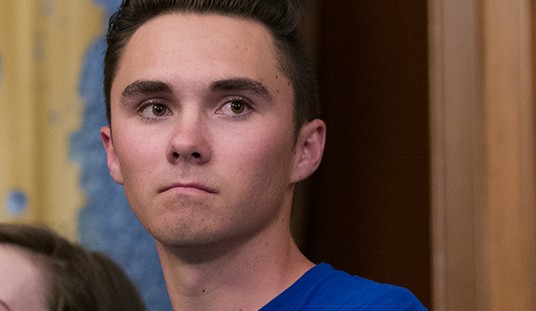The term “Net Neutrality” was coined by Columbia Professor Tim Wu in 2003. Net Neutrality originally referred to management of the “last mile” of the network over which data flows into a person’s home, but the debate has grown beyond that in recent years. The Federal Communications Commission (FCC) decided on February 26th to apply utility style regulations to the Internet by reclassifying it as a telecommunications service pursuant to Title II of the Communications Act of 1934. Unfortunately, the consequences of that decision will lead to rate regulation, government fast lanes, and increased fees and taxes that will drive up the cost of consumer plans.
FCC Chairman Tom Wheeler’s rules will apply some sections of Title II (entitled “Common Carriers”) and forbear from others. Specifically, sections 201, 202, and 208 will be applied in order to address services, discrimination, and complaints. The FCC will presumably decide what services are “just and reasonable” and resolve complaints between service providers and content providers.
While Chairman Wheeler is adamant that the FCC will not conduct rate regulation of broadband providers, Boston College law professor Daniel Lyons says that “..Title II is fundamentally a regime for rate regulation.” In fact, section 201(b) clearly states “All charges, practices, classifications, and regulations for and in connection with such communication service, shall be just and reasonable,..” If the FCC is not intent on regulating rates, then why is it placing itself in a position to do exactly that? Chairman Wheeler’s proclamations are counterintuitive to what we know about the function and application of the statute.
Here is how a typical situation might unfold. A person, which includes companies, could seek to recover damages in federal district court under Section 207 or bring a complaint to the FCC under Section 208 if their “charges” are not “just and reasonable”. The FCC will then evaluate whether the rate is fair. How will they determine this? What will the remedy be? Chairman Wheeler is correct that rate regulation will not be spelled out on the effective date of the rules. However, what about the first time a complaint is filed with the FCC?
Last week at the Morgan Stanley Technology, Media and Telecom conference in San Francisco, Netflix’s CFO stated the following about the FCC’s Net Neutrality rules: “Were we pleased it pushed to Title II? Probably not. We were hoping there might be a non-regulated solution.” This statement shocked many in the industry given Netflix’s aggressive advocacy for a Title II solution. Moreover, it sheds light on just how powerful these new rules truly are and leads me to the issue of Interconnection.
The FCC’s own fact sheet states the following regarding Interconnection: “For the first time the Commission would have authority to hear complaints and take appropriate enforcement action if necessary,..” Regulating Interconnection disputes is a grant of power that takes Net Neutrality well outside the realm of the “last mile” and onto the exit ramp of “edge providers” where content companies, such as Netflix and Google, reside. Moreover, exercising authority over Interconnection is simply another form of rate regulation. The FCC will now referee disputes and “address issues that may arise in the exchange of traffic between mass-market broadband providers and edge providers” (as noted by the FCC’s own fact sheet). What form will “an appropriate enforcement action” take that does not involve adjusting Interconnection fees?
Another issue worthy of examination is paid prioritization (a free market practice I support). Title II advocates hail reclassification as a scheme that will ban this practice, also known as “fast lanes”. They contend service providers charge content providers, such as Netflix and Google, more in order to push their data ahead of others (despite the fact that such companies are responsible for the majority of traffic). The thinking is that because the big companies can afford to pay, smaller entities will be disadvantaged as service providers squeeze money out of those who can most afford it.
However, will Title II reclassification ban paid prioritization? Section 202 states: “It shall be unlawful for any common carrier…to make or give any undue or unreasonable preference or advantage to any particular person,..” The statute simply conveys that an arrangement cannot be “unreasonable or undue”. It does not ban preferences. The only effect is that we will move from one form of paid prioritization to another. The government will now pick winners and losers as the FCC effectively decides where content is placed and how it moves. The hypocrisy is stunning.
Finally, I want to touch on the often-debated issue of taxation. I wrote an op-ed with FCC Commissioner Mike O’Reilly in July 2014 asking Chairman Wheeler to perform a cost-benefit analysis of potential Net Neutrality rules. Chairman Wheeler regrettably declined. While Title II proponents have argued for months that Net Neutrality rules will not result in additional fees and taxes, the truth is now emerging.
Last December, the Progressive Policy Institute (PPI) conducted a study and concluded that reclassifying the Internet as a telecommunications service would result in $11 billion of new fees and taxes. Some analysts countered by stating that Congressional extension of the Internet Tax Freedom Act (ITFA) at the end of 2014 would prohibit any new fees or taxes. ITFA prevents federal taxation of Internet access fees. However, as PPI points out, ITFA applies “to specific “sales or use taxes” as opposed to telecom-related fees”…”for which there is not federal pre-emption.” Even the liberal leaning Free Press now admits that reclassifying the Internet could lead to $4 billion in new fees and taxes. The Washington Post, in the midst of attacking PPI’s original $15 billion figure, has also conceded that fees and taxes could still run as high as $11 billion and that Net Neutrality “will cost some consumers something.” Therefore, the question is no longer if consumers will be paying more for their service, rather how much.
I once again introduced the Internet Freedom Act (H.R. 1212) last week to counter the FCC’s proposal. My legislation provides that Net Neutrality rules would have “no force or effect” and prohibits similar rules from being published or re-issued. The Internet Freedom Act has already attracted 43 co-sponsors and I anticipate many more. Members of Congress are rightly concerned about the FCC’s power grab.
I fear that light touch regulations that have allowed the Internet to prosper will now be replaced by a heavy hand that stifles innovation and does not adapt well to change. The Internet is not broken. FCC Commissioner Ajit Pai correctly opined that this “is a solution that won’t work to a problem that doesn’t exist.” Further, why will practices deemed unwelcome, such as paid prioritization, subsequently become acceptable simply because the government is stepping into the shoes of broadband providers? Reclassifying the Internet as a telecommunications service will have dangerous repercussions for years to come. Title II is a powerful regulatory scheme that takes Net Neutrality well beyond the “last mile.” Big Brother will slide into the role of Internet gatekeeper by determining rate regulation, how and where content is placed (if at all), and increasing fees and taxes that will lead consumers to pay more for their plans. Does this sound like the pillars of a foundation that will preserve a free and open Internet? According to Netflix, “Probably not.”













Join the conversation as a VIP Member